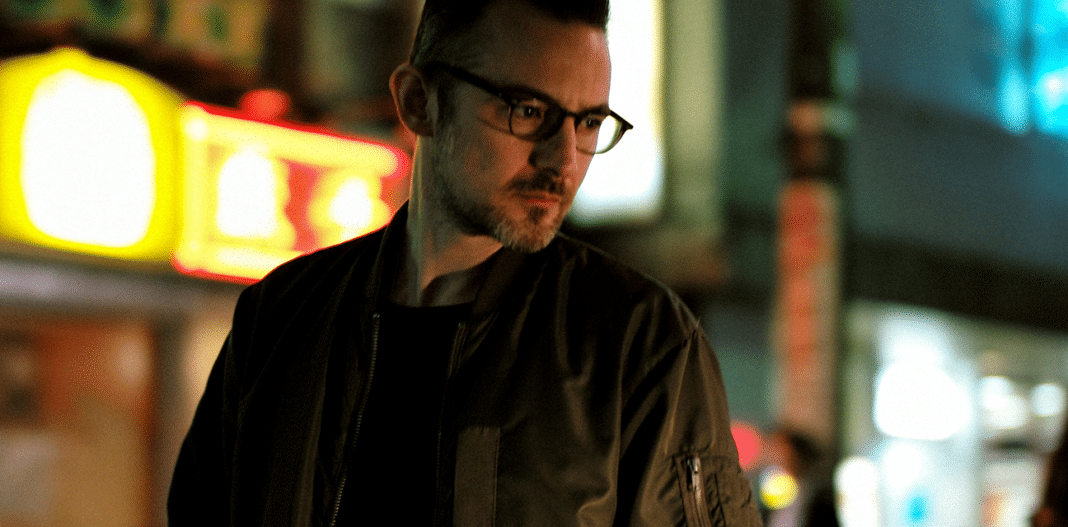Photo: Press (John Osborn)
It’s near impossible to not have caught a set by John Osborn if you’ve gone clubbing in Berlin in the past two decades. As a producer however, the British DJ has been far less prolific. Osborn released his first EP in 2011 on Tanstaafl, the label he had founded together with fellow DJ (and co-producer) October. Briefly after launching a new label, Dred, with an EP by Sven von Thülen, Osborn steps up to the decks to deliver a mix for our Groove podcast that combines the past and the present.
Besides running Tanstaafl and its more prolific sublabel Tanstaafl Planets together with October, you have recently launched Dred with an EP by S:VT. Why start a new imprint and what makes Dred different from Tanstaafl?
We started Tanstaafl way back in 2012 together – then set up Planets as an outlet for other artists, which I worked hard on for two years and spent a lot of money to get the releases out. I then set up Dred, using everything I had learnt about running a label. Tanstaafl is not over but currently more „on ice“ and, for me personally, it was time to start a new direction where I have total control. Dred is distributed by Wrong Hands Distribution, based in Berlin and run by a long term friend Ron Wilson. Wrong Hands is more of an underground boutique distribution company where Dred is amongst similar labels and artists that are all doing the same thing, driven by passion. Musically, there is not a huge difference between Tanstaafl and Dred, other than maybe Dred is more concrete and detailed in focus. I gave some artists in the early days of conception the description „mutant Dub Disco for the floor and mind” and let them decide what that exactly means.
You will be involved in every Dred release not only by releasing it, but also as a remixer. What is most important to you when you remix another person’s music?
Correct, I really love the remix format as it lends itself to my DJ brain. I have been essentially remixing tracks in my sets for the last 20 years by pulling parts from other tracks and now in 2017 mixing them with three decks, so in a production sense I find this format really appealing. I also get daunted by the fact that, starting from a blank canvas, I can go in any direction with my own productions. Having a track to remix, that I really like – and I obviously really like the music I commit to wax – gives me a starting point and a sort of brief. To me the end result of a remix has to at least offer a different take or direction to the original and also I like to hear that producer’s stamp being put on the remix.
Many people primarily know as a DJ with more than two decades of experience. As a producer however, you usually release a record per year which makes your output rather small compared to others. In a fast moving scene like this, it seems like it has become a necessity for DJs to also produce music on the side. Have you experienced those practical constraints yourself?
Yes of course, I have been told by many times „you need to release more to get bigger/successful/famous“, and so on. I find this really annoying, I want to make music because I enjoy it and for no other reason. Also, and I know its been said many times before, but the two things require totally different skills and due to this a lot of our clubs are filled with overpaid DJs doing terrible jobs because they are brilliant producers and vice versa. This is the paradox that has been created as the internet robbed producers of their way to earn a living with just making music. It’s a bit like fine art painters not making any money from painting pictures but having to go and do TV shows instead to make money. It is a very odd situation that people seem to have excepted and we are all generally less better off for it. Having said that, over the last few years more DJs have become more successful based on their merits as a DJ alone and that is encouraging.
You have said in an interview that as a dance music producer for you it is „not so easy to know if what you are doing is relevant in any way“. What is it that makes dance music relevant these days?
Tough question to ask me at this point in my life. I used to be very on the pulse of what is happening, who is whom and what is relevant, devouring information as much as possible – but these days, I actively avoid knowing these things as I feel that this knowledge started tainting my instinct, especially in this information age we live in today. I prefer to discover stuff on my own, in a more niche way without it being sold to me in the wrapping of an online magazine. Sometimes, this way i feel that music discovers me I just choose to „pick it up along the way“ – I keep my choices pure. I would say however that as long as there is a human need to escape, feel free and communicate, then dance music will stay relevant, like it has done essentially for thousands of years.
Especially Tanstaafl focused on the analogue side of Techno and House and you have even recorded DJ mixes straight to tape. How did you as a music listener experience the recent Lo-Fi House phenomena which is based on a similar aesthetic?
I wouldn’t say it was a label that exclusively focused on the analogue sound, in fact quite a few releases were produced all in the box and then got hailed as a „wonderful analogue House and Techno excursion“ which in-turn made me aware it is not actually what people are hearing that matters, but what they think they are hearing. The Lo-Fi genre as a hyped genre is just that; another thing that will come and go, and the good music associated with it will prevail and the rest will disappear. Some of the music attributed to this genre is full of wonderful emotion and expression, and some of it is just bad, ironically with intent. I’ll never forget a certain label releasing a 12” that a certain well-know record shop had to explicitly say „this is not a bad pressing, it is supposed to sound this way“ – well that’s an odd situation to find ourselves in, don’t you think? The mixes I recorded to tape was out of nostalgia for when I recorded all my mixes on tape as there was no other accessible format to record on. These recent times, it was a mix to tape with simultaneously a recording of the room on my digital recorder; Then using these two sound sources to splice the mix together afterwards in Ableton. When the tape had to be turned over to continue the mix you could actually hear me doing that in the room recording and modern digital technology made this possible – a mix of past and present via media formats. It is all about the human element and honestly, these are the two most important things I look for when listening to music and that can be found in every format and style.
Your contribution to our Groove podcast starts off with warm and dubby House grooves and then ventures into Techno territory. What was your idea behind and how did you record it?
I really wish sometimes I could be super relaxed and just strut up to my decks and record a mix, but this is just not in my nature. I have since the 90s always crafted mixes around a strong concept. I remember in 1998 after my first visit to Berlin I made a five-piece C90 tape mix, and the artwork for each tape when put together would reveal the Alexanderplatz Fernsehturm. The music also documented my first every visit to the city. This mix was recorded on 2 CDJ2000NXS decks, one 1200, the Rane MP2015 and an effects pedal with 20 tracks in just over 70 minutes direct from the mixer into my Tascam digital recorder. The main intention was to keep it as exciting as possible with a forward momentum, without losing the groove or coherence in the narrative using what could be described as very heady dubby tracks. This is quite a challenge with that amount of tracks changing so quickly. To do this it required an extensive selection process to keep these paradoxical elements in balance. I hope I achieved this in some way!
Last but not least: Where can we next see you behind the decks and what are your plans for the rest of the year as a producer?
I have a lot of remixes to do for the label, and there will be a solo release. Behind the decks you can catch me in Berlin at House Of Red Doors and Anita Berber. Then I will head out to Tel Aviv and also a mini tour in Asia at the end of summer. Thanks for giving me the opportunity to present this mix, look out for the second Dred release by Tom Dicicco, dropping in the next month or so.
Stream: John Osborn – Groove Podcast 98
01. Mr. YT – Souvenir
02. Fred P – Soul Life Connection feat. SolyMar
03. Pablo Mateo – Going Oreo
04. Reformed Society – Dimensions (Forthcoming on DRED)
05. Tom Dicicco – Ghetto Palm (Forthcoming on DRED)
06. Justin Cudmore – Sweet Phantasy
07. Markus Suckut – Your Arms
08. Carrying Ghosts – Gen
09. Anchorsong – Gyotens Kalimba (Sebastian Mullaert Intensification)
10. Grimes Adhesif – Autonomy
11. Rumah – A View To The Sea
12. Conforce – TKY (Original Mix)
13. Leo Leal – Moldavita
14. Bernie – Portray004
15. Trikk – Proto Rhyth (Black Version)
16. Fantastic Man – Galactic Ecstasy
17. Boston 168 – Softer Than Satin
18. Morphosis – Silent Screamer (Original Mix)
19. Dakota Veer – Proxy (The Casual Mix)
20. Mr. YT – Morning





